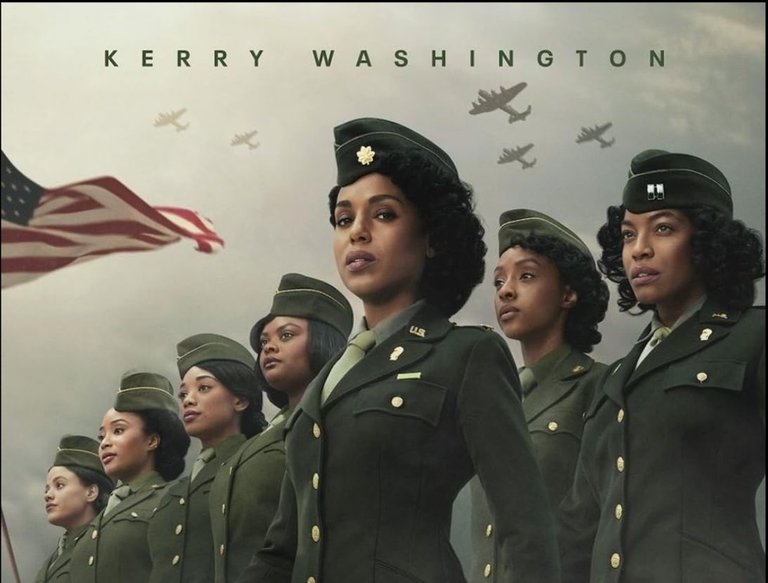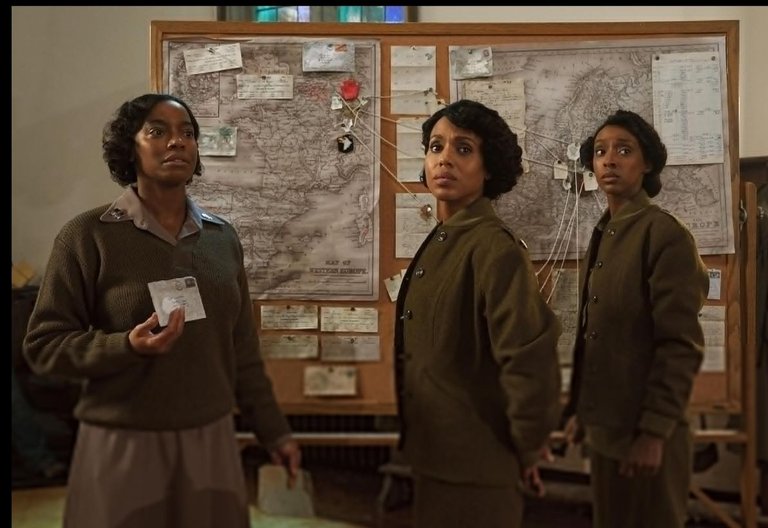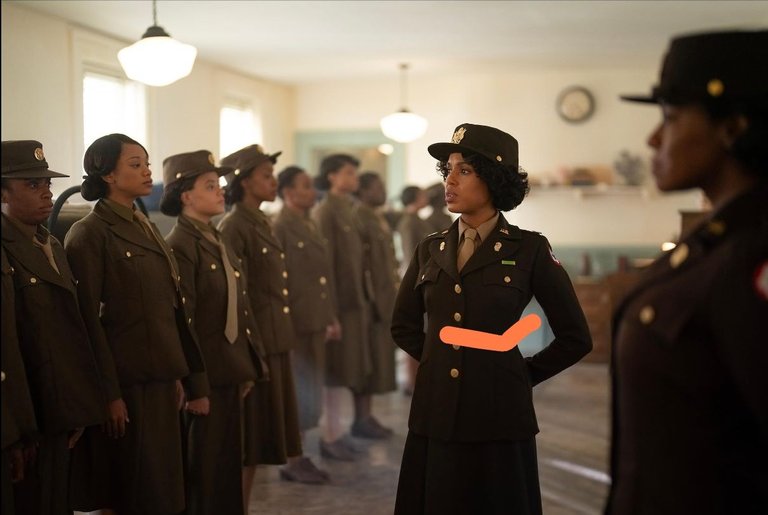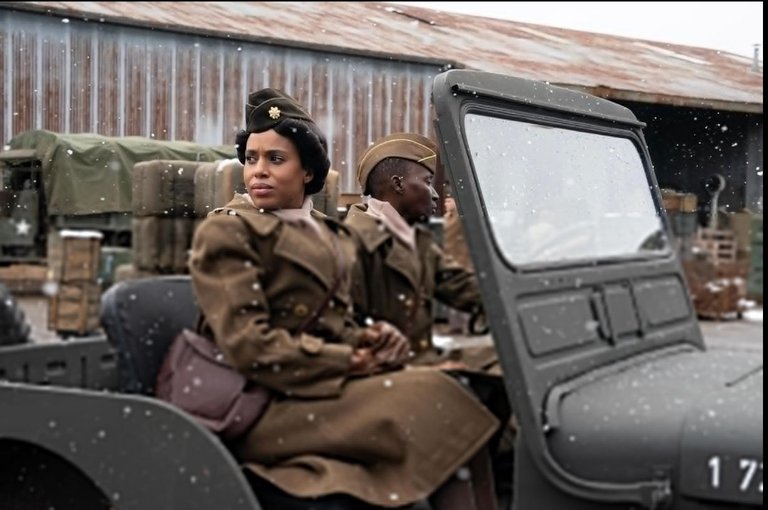If not for certain films, I might never have learned about some interesting, informative, and inspiring parts of history. The Six Triple Eight, in a way, happened to be a little different.

The Six Triple Eight depicts a true life story of the 6888th Central Postal Directory Battalion, an all-Black battalion of the United States Women's Army Corps, and the monumental role they played for the US Army during World War II.
Apparently, the US Army soldiers were not getting their mail to their loved ones delivered. Likewise, their loved ones couldn't have theirs delivered to their sons fighting in the war. The US Army was experiencing an all-time low in morale because of this hitch in the postal service.

Meanwhile, the black women in the WAC were facing discrimination in camps and all over, and they were hardly given any time of the day to prove themselves... Until Mary McLeod Bethune, an African-American and civil rights activist, got support from the First Lady, and US President Franklin D. Roosevelt set a movement that gave the 6888th Battalion a chance to prove themselves and fix that problem.
Eight hundred and fifty-five join the war effort to address a three-year mail backlog. Despite discrimination and war-torn conditions, they sort over seventeen million pieces of mail ahead of schedule. ~ Google
This is the type of film that teaches virtues by engaging the emotions of the viewer through its story. The film portrays the courage, determination, and resilience of the women of the 6888th battalion in a way that it could inspire its viewers to look inwardly within themselves for ways they could emulate such. That's how I felt at least.

What started out as a relaxed, comic storyline gradually turned into a rather moving emotional experience. I might have even caught a tiny bit of tears in my eye at some point. It would then not surprise me to find that it was written by Tyler Perry. Of course, I should have recognized his style, although The Six Triple Eight is a far different genre than I am used in his works.
Through the film, we see the fights outside the warfield—the frontline battles that had to be won, what families went through in those times having no information on the wellbeing of their loved ones in the war, the perspective of what it means to be a woman and black back then.

While there was an ensemble cast, I had my focus on specific characters and their actresses that I found very locked in with their roles. Each one of them represented different elements: love, courage, strength, humor, and skill. All of them put together made up a fine, interesting and lovable crew to watch.
"No mail, no morale." The Six Triple Eight didn't need guns or violence to make a deep, strong impact with its drama. And it is the kind of film you could actually watch with family.




